#ishihama akira
Photo


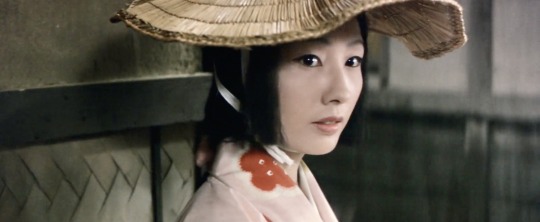



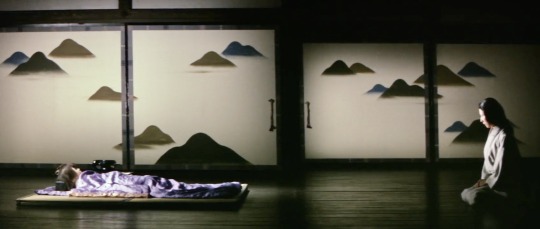
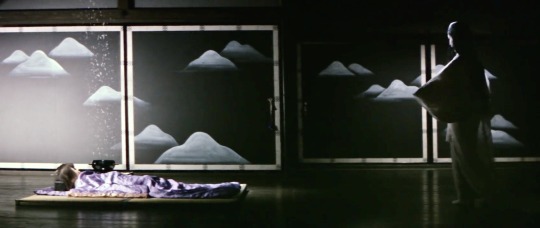
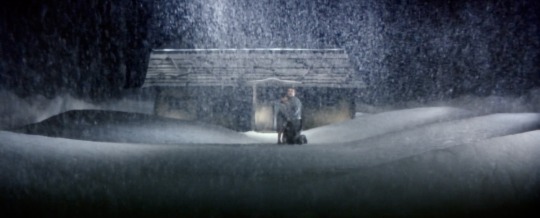
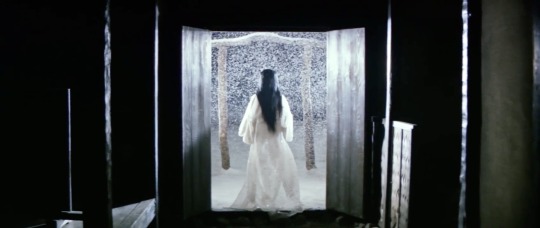
The Snow Woman (1968)
“I decided that I will not kill you. But in return, you must not tell anyone about what you see today. Even your most intimate people. Even your relatives, your wife or your children. If you say even one word about me, I will kill you.”
Based on the Japanese Folklore of Yuki-Onna, it tells the tale of a sculptor, Yosaku (Akira Ishihama), who encountered a ghost on a stormy snowy night where his mentor was frozen to death leaving him as the only survivor.
Few years later, Yosaku met a beautiful woman named Yuki (Shiho Fujimura) when his mother offered her shelter from the heavy thunderstorm for the night where she befriends them both and admires his craftsmanship.
Over time, both Yosaku and his mother grew fond of Yuki and beg her to stay a bit longer to which she agreed. They eventually express their love for each other and got married, have a child and live a good life, which did not last long.
A priestess saw Yuki at the temple and knows who she really is, confronted her at her home but Yosaku does not believe it as he had seen a ghost before and Yuki is nothing like her. But Yosaku had forgotten the promise he made.
Having broke his promise he made on that stormy night, Yuki reveals her true self to Yosaku before killing him but her attempt was stopped by their child who was crying. Yuki had a change of heart and decides to leave them instead.
***
It’s a good story which shows you that the humans are much more scarier than ghosts as humans are judgemental and egoistical creatures.
There are many folklore versions of Yuki Onna depending on which part of Japan it originates, each prefecture has its own stories and legends.
For this movie, it seems that it is set during Kamakura period, judging by the clothes that they wear and the attitude of the “warriors”.

Yuki’s dressing and hair reminds me of the court ladies of Taira or Heike. She probably died while trying to flee from the war during winter.

But her spirits live on. Maybe the real reason Yuki did not kill Yosaku because he reminds her of her late husband who died in war.

At least that’s what I’d like to think. It’ll make the story more interesting when you include in some historical events.
#the snow woman#yuki onna#japanese folklore#japanese folktale#shiho fujimura#fujimura shiho#akira ishihama#ishihama akira#japanese legends#japanese myths#japanese ghost#japan#japanese classic#heian period#kamakura period#taira#heike#genpei war#japanese film
61 notes
·
View notes
Text

#movies#polls#harakiri#harakiri movie#harakiri 1962#60s movies#masaki kobayashi#tatsuya nakadai#akira ishihama#have you seen this movie poll
88 notes
·
View notes
Text

Kaidan yukijorô / 怪談雪女郎 (1967)
AKA The Snow Woman, The Woman of the Snow, Snow Ghost, Ghost Story of the Snow Fairy, Ghost Story of the Snow Witch
#kaidan yukijorô#怪談雪女郎#the snow woman#the woman of snow#shiho fujimura#akira ishihama#machiko hasekawa#1967#1960s movies#tokuzô tanaka#daiei#horror#horror movie poster
30 notes
·
View notes
Photo
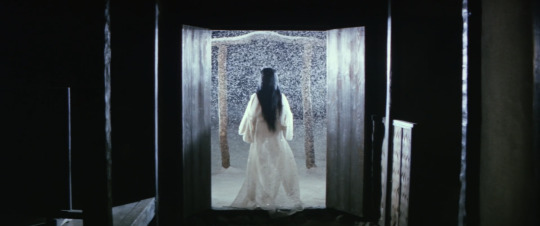
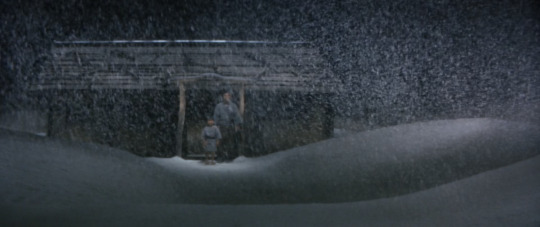
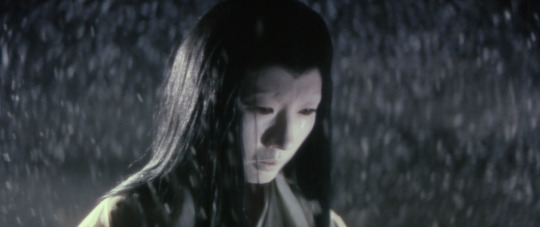
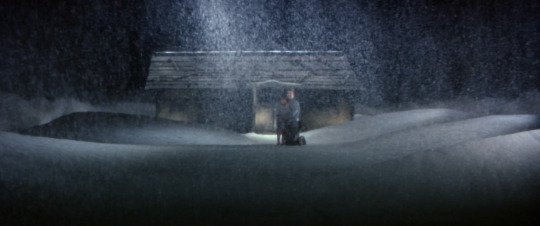

The Snow Woman - Tokuzō Tanaka 1968
146 notes
·
View notes
Photo

Hara-Kiri (1962)
#1960s#actor akira ishihama#dir masaki kobayashi#dp yoshio miyajima#cat action#cat mystery#cat samurai#japanese#monochrome#sweat#ear#shadow#hara-kiri#hara kiri#harakiri#hara kiri 1962#seppuku#hara-kiri 1962#harakiri 1962#seppuku 1962
16 notes
·
View notes
Photo
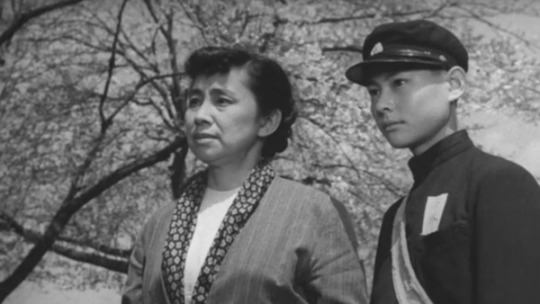
Akiko Tamura and Akira Ishihama in Boyhood (Keisuke Kinoshita, 1951)
Cast: Akira Ishihama, Akiko Tamura, Chishu Ryu, Renaro Mikuni, Toshiko Kobayashi, Mutsuko Sakura, Takeshi Sakamoto, Ryuji Kita. Screenplay: Keisuke Kinoshita, Sumie Tanaka, based on a novel by Isoko Hatano. Cinematography: Hiroshi Kusuda. Art direction: Tatsuo Hamada. Music: Chuji Kinoshita.
It's easy to see why Keisuke Kinoshita was one of Japan's most popular directors: He had that audience-pleasing ability to create identifiable characters and familiar situations, along with a sincere desire to make a statement about ordinary people caught up in the sweep of history. Like his Twenty-Four Eyes (1954), Boyhood is about people in wartime but not where the conflict rages most fiercely -- the conflicts in Boyhood are interpersonal and internal, not international. Ichiro (Akira Ishihama) is a 15-year-old boy, too young to fight in the war. When his family -- mother, father, two younger brothers -- relocates to the country during the war, Ichiro chooses to stay behind in Tokyo so he can continue his studies. But the first air raid finds him on a train to see his family, and when he returns to school he finds that he has fallen behind the other students and is stigmatized for his flight. So he joins his family in the country and starts at a new school, where he is an outcast, in part because the rural people treat the refugees from the city with scorn. He also feels at odds with his father (Chishu Ryu), an intellectual who tacitly disapproves of the war, and is disturbed by the fact that his mother (Akiko Tamura) does most of the work to keep the family fed and housed, while his father continues with his studies. Ichiro is regarded as a weakling by his fellow students, and the teachers, most of whom preach the militaristic virtues of strength and self-sacrifice, do little to help. When the lake freezes over in winter, for example, Ichiro finds that he is incapable of learning to skate, and though he makes a determined effort, he's mocked for his failure. Not as wrenchingly sentimental as Twenty-Four Eyes, Boyhood still elicits strong feeling because Kinoshita sticks with Ichiro's point of view -- his desire to fit in, his closeness to his mother, and his confusion about his father's distance from the reality of what is happening around them. At the conclusion of the film there's a measure of triumph in the defeat of militarism at the war's end, but there's also a feeling of a lack of resolution to Ichiro's story.
4 notes
·
View notes
Text
DOOR-RAM RIDER x AKIRA ISHIHAMA- (by Covox)
youtube
#akira ishihama#covox#ram rider#door#8-bit#8 bit music#8 bit#8-bit music#disco#pop#jpop#techno#Youtube
0 notes
Text
Y'all are so lucky that Tumblr doesn't feed me my fav old men like how Twitter does cause I may be private on there but I will shout my clownery with a megaphone on here
0 notes
Photo

The cover art for THE IDOLM@STER CINDERELLA GIRLS STARLIGHT MASTER R/LOCK ON! 07 ストリート・ランウェイ album has been released and the album is set to be released on the 3rd of August 2022. Alongside the title song, it will also feature respective solo versions and full versions of previous covers
Tracklist:
Tr.01 Street Runway (M@STER VERSION)
Lyrics: Karasuyasabou Music&Arrange: Kakeru Ishihama (MONACA)
Singer(s): Akira Sunazuka, Mirei Hayasaka, Yuko Hori, Riina Tada, Asuka Ninomiya
Tr.02 Saraba, Itoshiki Kanashimi-tachiyo
Lyrics: Yuho Iwasato Music: Tomoyasu Hotei
Singer(s): Uzuki Shimamura, Rin Shibuya, Mio Honda
Tr.03 Pinky Johns
Lyrics: Chokkyu Murano Music: NARASAKI
Singer(s): Karen Hojo, Kyoko Igarashi, Aiko Takamori
Tr.04 Street Runway (off vocal)
BONUS TRACK
Tr.05 Street Runway (M@STER VERSION) ~Akira Sunazuka Solo Remix~
Tr.06 Street Runway (M@STER VERSION) ~Mirei Hayasaka Solo Remix~
Tr.07 Street Runway (M@STER VERSION) ~Yuko Hori Remix~
Tr.08 Street Runway (M@STER VERSION) ~Riina Tada Solo Remix~
Tr.09 Street Runway (M@STER VERSION) ~Asuka Ninomiya Solo Remix~
Tr.10 Street Runway (GAME VERSION)
Singer(s): Akira Sunazuka, Mirei Hayasaka, Yuko Hori, Riina Tada, Asuka Ninomiya
9 notes
·
View notes
Photo

ゲスト◇石濱 朗(Akira Ishihama)俳優
1935年東京生まれ。立教大学文学部卒業。暁星高校在学中に松竹映画、木下恵介監督「少年期」主役少年の募集に応募。1500人の中から選ばれ、高校1年生で銀幕デビューを果たす。以後も松竹専属として中村登の「波」、小林正樹の「息子の青春」「切腹」「人間の条件」、渋谷実の「青銅の基督」など一流監督の作品に数多く出演し松竹を代表するスターとなった。また故・美空ひばりとは「伊豆の踊子」「若き日は悲し」「娘船頭さん」で共演している。65年に明治座公演「図々しい奴」出演を機に、新国劇に入団活動の拠点を舞台に移す。主な舞台に「風林火山」「大菩薩峠」「人生劇場」などがある。近年は、テレビ朝日「相棒 Season 7」、NHKドラマ「ゴーストフレンド」に出演。また、2009年より日本映画俳優協会の理事長に就任し、日本映画業界のさらなる発展に日々邁進している。
※プロフィールは、2011年出演当時のものです。
0 notes
Photo







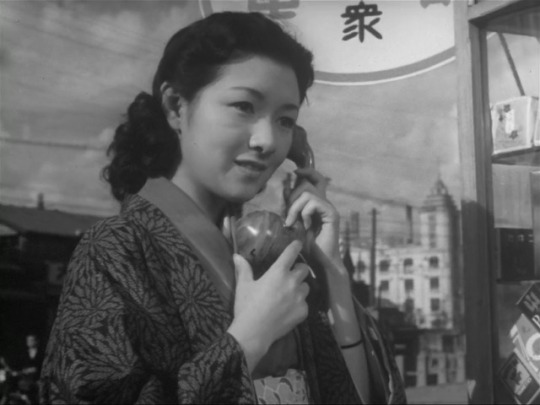


Somewhere Beneath the Wide Sky / Kono hiroi sora no dokoka ni (1954, Masaki Kobayashi)
この広い空のどこかに (小林正樹)
1/10/22
#Somewhere Beneath the Wide Sky#Kono hiroi sora no dokoka ni#Masaki Kobayashi#Hideko Takamine#Keiji Sada#Yoshiko Kuga#Akira Ishihama#Minoru Oki#Masami Taura#Kumeko Urabe#Chieko Nakakita#drama#Japanese#gendaigeki#domestic#50s#postwar#families#in-laws#Tokyo#liquor store#disabilities#husband hunting#dysfunctional family#poverty#class differences#matchmaking#Japanese Golden Age
9 notes
·
View notes
Photo

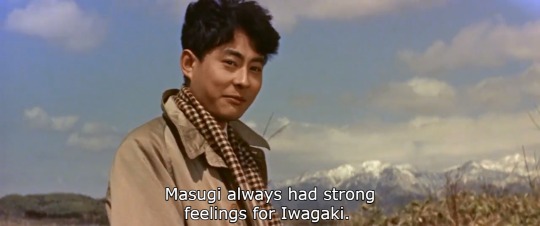

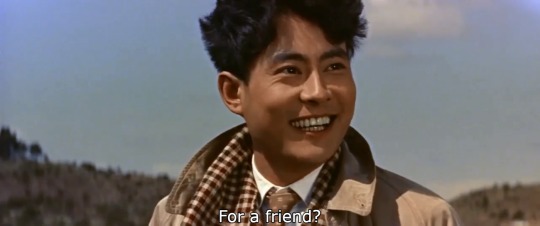
Farewell to Spring(1959)
#film#farewell to spring#sekishun chô#1959#akira ishihama#masahiko tsugawa#toyozo yamamoto#keisuke kinoshita#50s#vintage#...
9 notes
·
View notes
Photo

The Snow Woman - Tokuzō Tanaka 1968
25 notes
·
View notes
Photo

Magokoro, 1953 (dir. Masaki Kobayashi)
102 notes
·
View notes
Photo

Masami Taura and Akira Ishihama in Somewhere Beneath the Wide Sky (Masaki Kobayashi, 1954)
Cast: Keiji Sada, Yoshiko Kuga, Hideko Takamine, Akira Ishihama, Minoru Oki, Toshiko Kobayashi, Masami Taura, Kumeko Urabe, Chieko Nakakita, Shin'ichi Himori, Ryohei Uchida. Screenplay: Yoshiko Kusuda. Cinematography: Toshiyasu Morita. Art direction: Kazue Hirataka. Film editing: Yoshi Sugihara. Music: Chuji Kinoshita,
Somewhere Beneath the Wide Sky* is a reminder that Masaki Kobayashi began his career as an assistant to Keisuke Kinoshita. It not only employed Kinoshita's brother Chuji as composer of the score, along with the director's usual film editor, Yoshi Sugihara, it also displays one of Kinoshita's usual domestic drama themes: the conflict of tradition and modernity as several generations of a family try to work out a way of living together in postwar Japan. And it shares some of Kinoshita's sentimentality in the developments of its plot. In tone and theme, Somewhere Beneath the Wide Sky could not be more different from the film Kobayashi made just before it: the harsh, fierce The Thick-Walled Room, which was made in 1953 but which the studio withheld from release until 1956. For that matter, it's not much like Kobayashi's bleak slum drama Black River (1956) or his unsparing three-part antiwar epic The Human Condition (1959-1961). Kobayashi would find his way out of the genteel trap that Somewhere Beneath the Wide Sky represents. Which is not to say that he didn't make a pleasant, thoroughly enjoyable film in which everyone seems to find themselves on the right path by the time the plot works itself out. Ryochi (Keiji Sada) and Hiroko (Yoshiko Kuga), who run the family liquor store, have married for love, which alienates his stepmother, who would have preferred an arranged marriage. Abetted by Ryochi's depressed, self-loathing sister, Yasuko (Hideko Takamine), the stepmother constantly finds fault with Hiroko. Eventually, however, everyone makes peace, thanks in large part to Ryochi's steadfast good nature in defense of his wife and to Yasuko's unexpectedly finding love and a new purpose in life. The feel-good elements of the film are not quite so convincing as the harsher parts, but the performances -- especially that of Takamine in a cast-against-type role -- are persuasive.
*The Criterion Channel title is a translation of the Japanese title Kono hiroi sora no dokoka ni. IMDb gives it as Somewhere Under the Broad Sky, and I've also seen it referred to as Somewhere Beneath the Vast Heavens.
1 note
·
View note